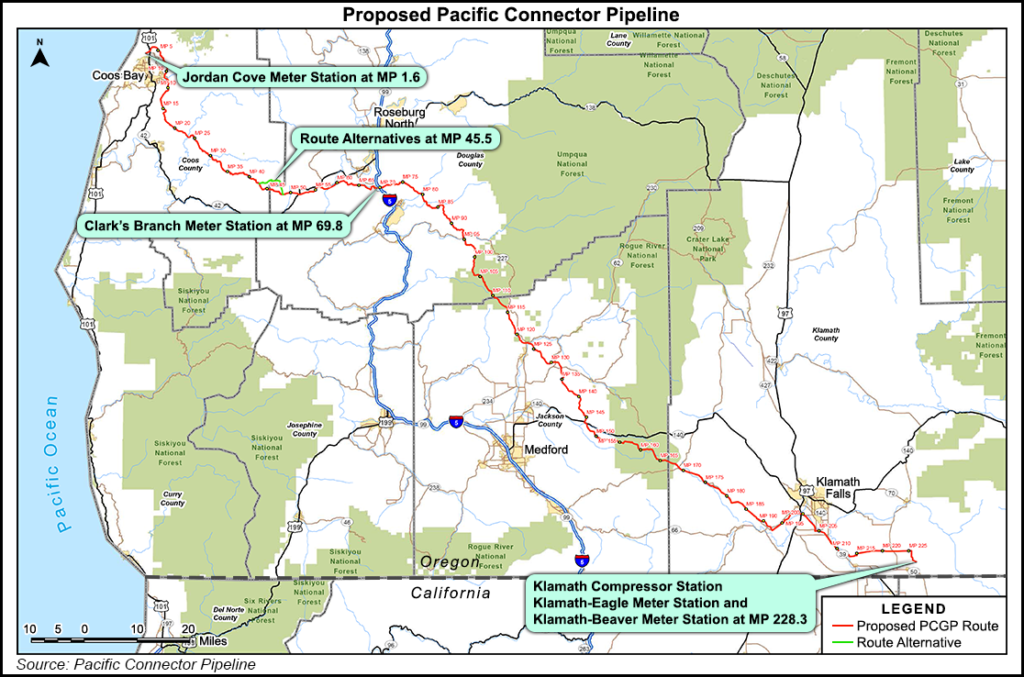Infrastructure | LNG | NGI All News Access
Local Opposition Dogging Jordan Cove LNG Project
A coalition of activist groups, citing parallels to the protests against the Dakota Access Pipeline project, is urging Oregon officials to reject the proposed Jordan Cove liquefied natural gas (LNG) export terminal and the 232-mile Pacific Connector (PCPL) gas pipeline.

“There are clear parallels between Jordan Cove/Pacific Connector and the Dakota Access project in North Dakota,” said Southern Oregon Rising Tide’s Alex Budd. PCPL “threatens indigenous cultural sites and resources, as well as water sources, and the situation in North Dakota has energized folks against PCPL.”
Budd said that unless Jordan Cove sponsor Veresen Inc. abandons the project, more demonstrations would be planned in opposition to the $6 billion LNG and pipeline projects. A sit-in was held earlier this month.
“Just like we’re seeing in North Dakota, there’s increasing escalation against the Jordan Cove/PCPL project, coming at the same time that state and federal governments are both increasingly hesitant to permit the project and increasingly under pressure to deny.”
An official in the Oregon Energy Department told NGI earlier this month that agencies continue to review Jordan Cove but they have not met with their counterparts at the Federal Energy Regulatory Commission (FERC) for several months.
During the sit-ins by protesters and a subsequent meeting with Oregon Department of State Lands, state officials said they were concerned about whether Jordan Cove would be able to comply with the state’s “fill-and-removal” laws applicable to the development of the export terminal site and ship docking facilities.
In March, FERC rejected Calgary-based Veresen’s application for an LNG terminal and pipeline. Early in November, Jordan Cove CEO Elizabeth Spomer wrote FERC Chairman Norman Bay to urge approval of a rehearing of the LNG export project’s application, noting that if there is no federal action by the end of the year some state and local agencies may dismiss pending applications on the project and pipeline.
“Numerous local, state and federal agencies have agreed to continue processing applications for other authorizations that [Jordan Cove] requires, or in some cases to at least hold permit application proceedings in abeyance,” Spomer wrote. “However, [we] have been informed that certain agencies may dismiss pending applications if [FERC] has not ruled in substance on the request for rehearing by January 2017.”
She noted that the lack of action by FERC is preventing more definitive commercial agreements from being finalized and from Pacific Connector finalizing additional pipeline rights-of-way agreements.
A gas-fired electric generation plant proposed adjacent to the LNG terminal for its power source is currently categorized as a “contested case” before the Oregon Energy Infrastructure Siting Council, which has the final say on whether the generation plant gets built.
© 2024 Natural Gas Intelligence. All rights reserved.
ISSN © 1532-1231 | ISSN © 2577-9877 |
